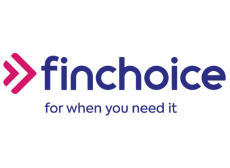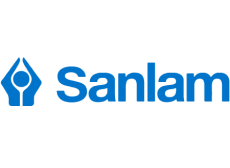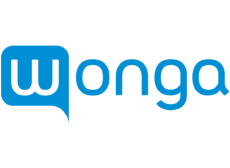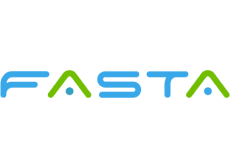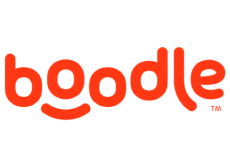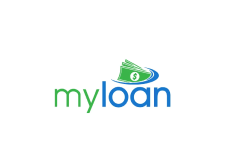Loans Without Affordability Checks
Securing a loan in South Africa is generally a straightforward procedure, but it hinges on having your documentation correctly organized and up-to-date. A majority of lenders in South Africa exercise caution and adhere to strict lending criteria. They won’t readily offer loans unless you align with their specified qualification prerequisites. One of the most common measures undertaken by these lenders is the affordability assessment, ensuring that potential borrowers can comfortably manage their loan repayments.
Such affordability evaluations can present challenges, especially for those who might not have all the necessary documentation on hand or for those operating on a tighter budget. This can make accessing essential funds more difficult when faced with unexpected financial needs. So, the question arises: Are there loans available that don’t necessitate these affordability checks? Such loan options could serve as a potential avenue for those who find the traditional lending requirements restrictive. Let’s delve deeper into this possibility and explore if it’s a suitable choice for your financial situation.
LOANS WITHOUT AFFORDABILITY CHECKS: WHAT ARE THEY?
When you approach a financial institution or a lender for a personal loan, the typical procedure entails a comprehensive assessment of your financial standing. This starts with the completion of an application form that captures essential details about you, both personal and financial.
Creditors, in particular, zero in on your financial particulars. For instance, they’re keen to gauge your monthly income versus your expenses or gain insight into your household’s fiscal discipline. Crucial metrics, like your debt-to-income ratio, stand out in this regard. This ratio offers a comparative snapshot of your monthly earnings against your accumulated monthly debts.
But the due diligence doesn’t stop there. To corroborate the information you’ve provided, lenders often request supporting documents. Commonly sought-after documents include a valid South African ID, the most recent payslips, and bank statements which present a clearer picture of your financial transactions and solvency.
In their deep dive into your financial health, lenders will also scrutinize your credit track record. This is to ascertain your current indebtedness, any past defaults or irregularities, and, importantly, whether you possess the financial bandwidth to manage yet another loan commitment. This rigorous process is what’s referred to as an ‘affordability check’.
In stark contrast, loans that bypass the affordability checks, either in totality or partially, essentially provide a streamlined application process. These loans eschew some of the stringent steps typically taken by lenders to ascertain a borrower’s repayment capacity. As a result, when you opt for a loan without an affordability evaluation, the approval process tends to be more lenient, swifter, and, arguably, more convenient for the borrower.
UNDERSTANDING THE APPEAL OF LOANS WITHOUT AFFORDABILITY CHECKS
When navigating the financial world, certain circumstances might prompt individuals to lean towards personal loans that don’t require an affordability check. Let’s delve deeper into the reasons that make such loans attractive to some borrowers:
- Cash-based Earnings: Some individuals operate in sectors or jobs where their income is predominantly cash-based. As a result, they might not have conventional documentation like payslips or regular bank statement entries to substantiate their earnings.
- Fresh into the Workforce: Those who’ve recently embarked on their professional journeys might not have accumulated enough financial records, like a consistent series of bank statements or payslips. As they are in the early phase of their employment, traditional documentation requirements might act as a barrier.
- Desire for Larger Loan Amounts: At times, borrowers have a precise amount in mind when considering a loan, perhaps due to a specific need or investment. They might not want their borrowing capacity limited by a conventional affordability analysis that might deem the desired amount as ‘unaffordable’.
If any of the aforementioned scenarios resonate with you, it’s natural to contemplate loans devoid of the standard affordability checks. However, it’s worth noting that there are potential alternative solutions to bypass certain challenges:
- Alternative Proof of Income: If you’re unable to present the standard set of payslips or bank statements, some lenders might accept alternative proof. For instance, a formal letter from your employer detailing your income could suffice for some creditors.
- Secured Personal Loans: If you’re eyeing a more substantial loan amount, leveraging assets as collateral can be a strategy. Secured loans can offer better terms and potentially larger amounts since the lender has the added security of the asset, which can be liquidated in case of default.
In essence, while loans without affordability checks cater to specific needs, it’s always prudent to explore various options and ascertain the best fit for your unique financial landscape.

THE IMPORTANCE OF AFFORDABILITY CHECKS: A DEEPER INSIGHT
While the prospect of easily obtaining a loan without an affordability check may sound enticing, the reality is that most credit institutions prioritize such evaluations. But why is this the case?
- Promotion of Responsible Lending: Foremost on the list is the ethical obligation of lenders to uphold responsible lending practices. This means they have a duty to ensure that borrowers can realistically manage and repay the loan amounts they request. Blindly extending credit without gauging a borrower’s repayment capacity runs counter to this principle.
- Protecting Both Parties: The ramifications of sanctioning a loan that exceeds a borrower’s capacity can be detrimental to both parties involved:
- For the Borrower: Overburdening oneself with a loan that isn’t sustainable can lead to missed payments, added financial stress, and a compromised quality of life. Additionally, resorting to the strategy of “robbing Peter to pay Paul” — borrowing more to settle existing debts — can trap individuals in a relentless cycle of mounting debt. This not only strains one’s financial wellbeing but also tarnishes their creditworthiness, jeopardizing future borrowing endeavors.
- For the Lender: From the lender’s perspective, a defaulting borrower translates to financial setbacks. Recuperating outstanding amounts can become cumbersome, involving processes like engaging debt collection agencies or resorting to legal action, both of which are time-consuming and costly.
- Maintaining a Healthy Financial Ecosystem: A broader perspective reveals that unchecked lending could erode the overall health of the financial system. If a significant number of borrowers default due to imprudent lending practices, it could strain financial institutions, potentially leading to wider economic repercussions.
- Upholding Regulatory Standards: In many jurisdictions, including South Africa, regulatory frameworks mandate lending institutions to conduct thorough checks before credit disbursement. This is to protect consumers from falling prey to predatory lending practices and to maintain the integrity of the financial sector.
In sum, while the idea of swift loan approvals without in-depth checks might seem appealing, the inherent risks and the overarching aim to ensure financial stability make affordability assessments indispensable in the lending landscape.
LOANS WITHOUT AFFORDABILITY CHECKS VERSUS LOANS WITHOUT CREDIT CHECKS
At first glance, loans without affordability checks and those without credit checks may seem analogous, but they address distinct aspects of a borrower’s financial profile. Let’s unpack the nuances between these two.
Purpose and Focus:
- Affordability Checks: The central question here is about the borrower’s current financial capacity. The lender seeks to understand, “Is the borrower financially equipped to manage and repay the loan they’re requesting?” This involves assessing the applicant’s income, expenses, and other financial obligations.
- Credit Checks: This revolves around the borrower’s past financial behavior and reliability. The lender asks, “Given the borrower’s past financial track record, can they be trusted to honor their loan repayment commitment?”
Impact on the Borrower:
- Affordability Checks: These checks may limit the amount one can borrow based on their current financial situation but generally do not impact the borrower’s credit score directly.
- Credit Checks: A deep dive into an individual’s credit history can momentarily affect their credit score, especially if many checks are done in a short span. Moreover, any negative markers or defaults on the credit report could lead to loan rejection, terming the individual as ‘high-risk’ or ‘not creditworthy’.
Why Borrowers Seek Alternatives:
- Loans Without Affordability Checks: Borrowers might lean towards these when they lack traditional documentation (like payslips) or when they believe their current financial situation doesn’t truly reflect their ability to repay the loan.
- Loans Without Credit Checks: These appeal to individuals concerned about multiple inquiries impacting their credit score or those aware of blemishes in their credit history that might hinder loan approval.
Risks and Benefits:
- Affordability Checks: By skipping this, borrowers might access loans that stretch their finances thin, leading to potential financial distress. On the other hand, for those with non-traditional income sources, such loans might offer a necessary financial boost.
- Credit Checks: Bypassing these can protect a borrower’s credit score from multiple inquiries. However, it might also mean the lender is taking on higher risk, which could translate to higher interest rates for the borrower.
In essence, while both checks serve as tools for lenders to gauge different facets of a borrower’s financial landscape, understanding their distinct implications can help borrowers make more informed decisions about the kind of loans they pursue.
TYPES OF LOANS THAT BYPASS AFFORDABILITY CHECKS
Different financial needs and individual circumstances might lead borrowers to consider loans that don’t necessitate rigorous affordability checks. Let’s expand on two prominent types:
Secured Loans
- Nature: A secured loan necessitates collateral, which acts as a safety net for the lender. This could be tangible assets like a car, property, or even valuable jewelry.
- Advantages: Given the presence of collateral, lenders might be more lenient in their approval process, potentially offering larger loan amounts and possibly at lower interest rates.
- Risks: The significant risk here is the potential forfeiture of the pledged asset. If a borrower defaults or fails to meet the repayment terms, the lender has the legal right to seize and liquidate the collateral to recover the outstanding amount.
- Key Takeaway: While secured loans can be easier to obtain and come with better terms, it’s imperative to be confident about one’s ability to repay to avoid losing the asset.
Payday Loans
- Nature: These are short-term, unsecured loans usually extended till the borrower’s next payday. They’re often sought for immediate financial needs or emergencies.
- Advantages: Payday loans offer quick access to funds without the need for collateral. Their approval process is typically swift, catering to urgent financial requirements.
- Risks: The flip side to the convenience they offer is the cost. Payday loans tend to come with substantially higher interest rates and fees. If not managed properly, these can accumulate quickly, leading to a burdensome debt cycle.
- Key Takeaway: While they’re a handy solution for immediate financial crunches, borrowers should be aware of the cost implications and ensure they can repay the loan by the due date to avoid spiraling into debt.
In conclusion, while loans that bypass strict affordability checks offer more relaxed access to funds, they also come with their own sets of risks and benefits. As always, understanding the nuances of each loan type is pivotal for making informed borrowing decisions.

THE LEGALITY OF LOANS WITHOUT AFFORDABILITY CHECKS IN SOUTH AFRICA
In South Africa, the allure of loans without stringent affordability checks might seem like a quick financial solution. However, it’s essential to understand the regulatory backdrop to ensure you’re not walking into a potential legal quagmire.
The National Credit Act (NCA) of South Africa is crystal clear on its stance against reckless and irresponsible lending. This act enforces certain checks and balances to ensure both the protection of the consumer and the stability of the financial sector. According to Experian and other financial experts, when determining loan eligibility, South African credit providers are expected to undertake the following diligence:
- Income Verification: Apart from the foundational requirement of a valid South African ID, lenders need to examine recent bank statements or other reliable financial records to ascertain the applicant’s monthly earnings.
- Income Estimation & Monitoring: Not only should lenders have a clear understanding of an applicant’s current income, but they should also be vigilant about any fluctuations or changes in their financial situation over time.
- Debt-to-Income Ratio Analysis: This metric is pivotal as it provides a snapshot of the borrower’s existing debt obligations relative to their monthly income, offering insights into their repayment capacity.
- Assessment of Monthly Disposable Income: A thorough review of an applicant’s household budget juxtaposed with their earnings is essential. This ensures that post all monthly commitments, the borrower has adequate residual income to manage the loan repayments.
Furthermore, the NCA mandates transparency from credit providers:
- Lenders must provide an unambiguous breakdown of all costs associated with the loan, ensuring borrowers are fully informed and not caught off guard by hidden fees or terms.
- Credit providers must adhere to the interest rate ceilings and fee structures stipulated by the NCA, ensuring that borrowing costs remain within legally accepted bounds.
Reckless lending practices that plunge borrowers into a state of overindebtedness can have serious consequences. Debt Counsellors in South Africa have the authority to report such negligent lenders to the National Credit Regulator (NCR).
In essence, while the idea of loans without affordability checks might sound tempting, borrowers should tread with caution and always ensure they’re engaging with compliant and reputable lenders in the South African financial landscape.

